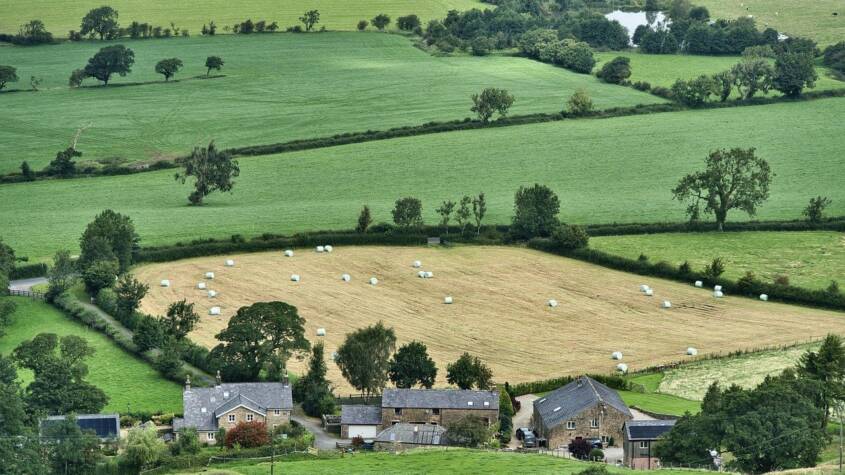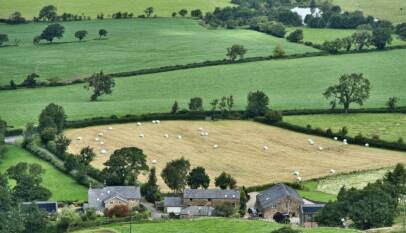
Ontario is home to a vibrant agricultural sector that plays a crucial role in both the local and national economy. The province boasts diverse farms that produce a wide range of commodities, including fruits, vegetables, grains, and livestock, making it one of Canada’s top agricultural regions. This diversity is not only essential for food production but also supports thousands of jobs and cultivates rich rural communities.
Visitors to Ontario can explore various farms that offer unique experiences, such as farm tours, seasonal festivals, and farm-to-table dining. These activities provide insight into the life of farmers and the importance of sustainable practices in modern agriculture. Families often find joy in visiting U-pick farms or farmers’ markets, where they can connect with local producers and experience fresh, quality food.
Understanding the significance of farms in Ontario reveals the intricate relationship between agriculture and daily life. Local farms contribute not only to the economy but also to the cultural fabric of the province, making them essential to both residents and visitors alike.
Overview of Farms in Ontario
Ontario’s agricultural landscape is diverse, featuring various types of farms located across the province. Farming practices vary by region, adapting to local climates and soil conditions, which shapes the agricultural output significantly.
Types of Farms
Ontario hosts a wide array of farms, including:
- Dairy Farms: These are prevalent in regions like Ontario’s southwest, focusing on milk production and dairy products.
- Crop Farms: Major crops include corn, soybeans, and wheat. These farms are concentrated in the southern areas where the soil is fertile.
- Fruit and Vegetable Farms: This includes operations specializing in apples, blueberries, and various vegetables, often seen in the Niagara region.
- Mixed Farms: Combining crops and livestock, these farms offer diversification and resilience.
Each type contributes to Ontario’s status as a significant agricultural producer in Canada.
Regional Farming Practices
Farming practices differ throughout Ontario due to varying climate and soil types:
- Southern Ontario: Dominated by large-scale commercial farms, this region benefits from a longer growing season. This area focuses heavily on cash crops.
- Central Ontario: Here, smaller farms often utilize more sustainable practices, including organic farming techniques.
- Northern Ontario: Characterized by a shorter growing season, farming here consists mainly of grain and forage crops, along with livestock.
Regional conditions shape what farmers can grow and how they operate, influencing the overall agricultural profile of Ontario.
Economic Impact of Ontario Farms
Ontario farms significantly contribute to the province’s economy through agricultural output and employment. Their role shapes various sectors and drives local communities’ prosperity.
Contribution to Provincial Economy
Farming is a cornerstone of Ontario’s economy. The agricultural industry contributes approximately $5 billion annually to the province’s GDP. Crop and livestock production plays a pivotal role, with corn, soybeans, and dairy among the top products.
In 2022, Ontario produced about $34 billion in total farm gate receipts. This reflects a diverse agricultural sector that includes fruits, vegetables, and grains, catering to both local and international markets.
The sector stimulates other industries, such as food processing and distribution. The financial transactions connected to farming ripple through the economy, affecting countless businesses, from suppliers to retailers.
Employment and Labor
Agriculture in Ontario also provides substantial employment opportunities. Approximately 90,000 people work on farms across the province. This includes both seasonal and full-time positions, highlighting the industry’s reliance on a diverse workforce.
Workers engage in various roles, from field harvesters to equipment operators. With an increasing focus on sustainable practices, many employers are seeking skilled labor knowledgeable in cutting-edge agricultural technologies.
In addition to direct employment on farms, related industries create thousands of jobs in transportation, processing, and marketing. These interconnected job opportunities enhance economic stability within rural communities and support urban economies as well.
House for Sale at Mississauga: Top Listings and Market Insights
Many buyers are interested in finding a house for sale in Mississauga due to its diverse n…









